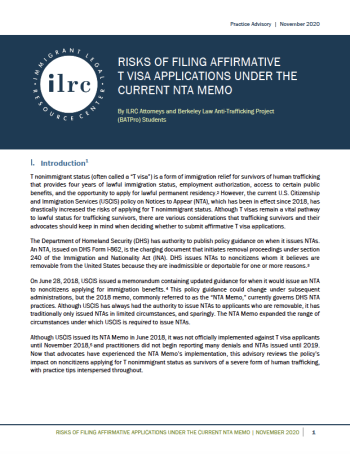
T nonimmigrant status (often called a “T visa”) is a form of immigration relief for survivors of human trafficking that provides four years of lawful immigration status, employment authorization, access to certain public benefits, and the opportunity to apply for lawful permanent residency. However, the current U.S. Citizenship and Immigration Services (USCIS) policy on Notices to Appear (NTA), which has been in effect since 2018, has drastically increased the risks of applying for T nonimmigrant status. Although T visas remain a vital pathway to lawful status for trafficking survivors, there are various considerations that trafficking survivors and their advocates should keep in mind when deciding whether to submit affirmative T visa applications. Although USCIS issued its NTA Memo in June 2018, it was not officially implemented against T visa applicants until November 2018, and practitioners did not begin reporting many denials and NTAs issued until 2019. Now that advocates have experienced the NTA Memo’s implementation, this advisory reviews the policy’s impact on noncitizens applying for T nonimmigrant status as survivors of a severe form of human trafficking, with practice tips interspersed throughout.
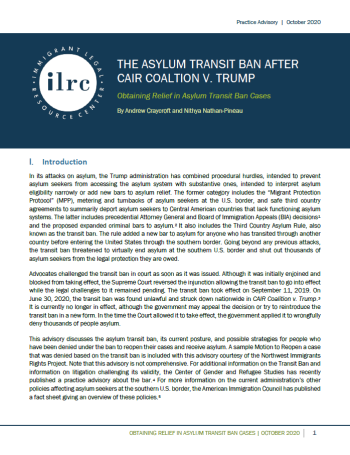
On June 30, 2020, the Third Country Asylum Rule, or asylum transit ban, was found unlawful and struck down nationwide in CAIR Coalition v. Trump. This advisory discusses the asylum transit ban, the CAIR Coalition decision, and possible strategies for people who have been denied under the ban to reopen their cases and receive asylum.
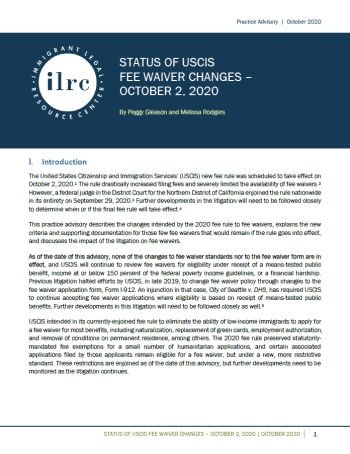
USCIS attempted to drastically limit fee waiver availability and fee waiver standards through the 2020 fee rule. The agency also tried to limit fee waivers by changing the I-912 fee waiver form. For now, these attempted changes have been stopped by injunctions. Applicants can continue to apply for fee waivers based on the 2011 fee waiver guidance.
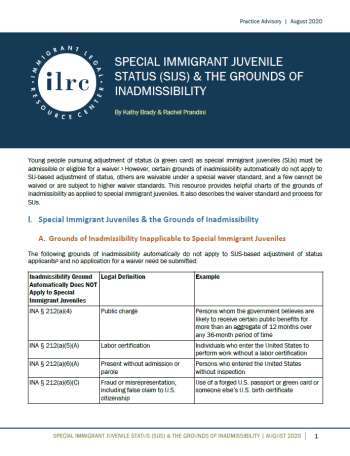
This resource provides helpful charts of the grounds of inadmissibility as applied to special immigrant juveniles (SIJs). It also describes the waiver standard and process for SIJs.
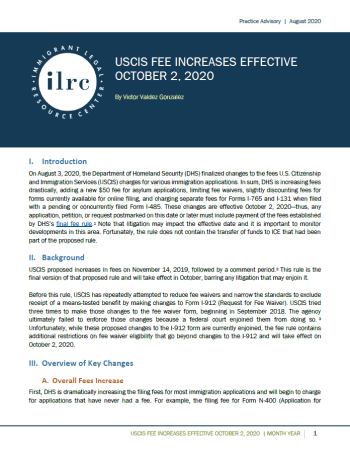
Alert: On September 29, 2020 the Fee Rule was enjoined nation-wide in its entirety by a District court in the Northern District of California, ILRC et al. v. Chad F. Wolf, et al. (ND California) (Case 4:20-cv-05883-JSW) (Sept. 29, 2020).
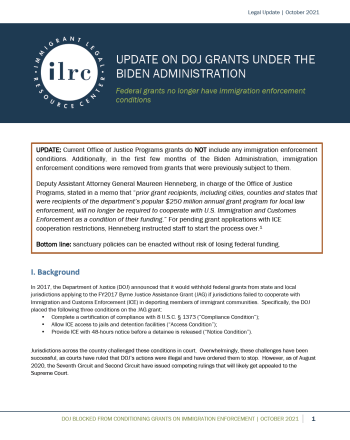
Throughout the Trump Administration, the federal government has sought to undermine sanctuary policies by requiring that cities help ICE with immigration enforcement in order to receive certain federal grants from the DOJ. These policies have spurred a dozen lawsuits, almost all of which have ruled in favor of the cities challenging DOJ’s conditions. In 2021, the Biden administration removed all current and prior immigration conditions on federal grants. This advisory explains more about the grant programs affected, the litigation, and what localities should know and do in the current environment.
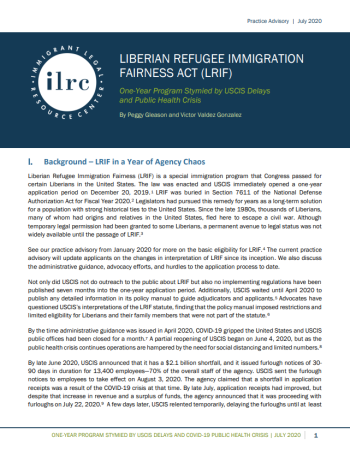
This practice advisory will update applicants on the changes in interpretation of LRIF since its inception. We also discuss the administrative guidance, advocacy efforts, and hurdles to the application process to date.
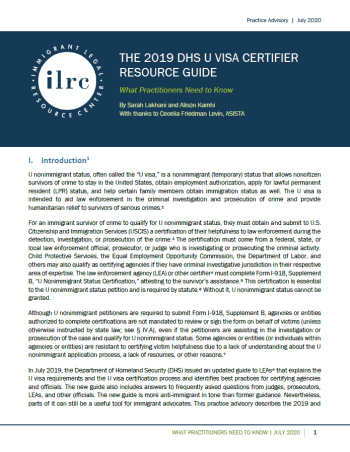
For an immigrant survivor of crime to qualify for U nonimmigrant status, they must obtain and submit to USCIS a certification of their helpfulness to law enforcement. A law enforcement agency (LEA) or other certifier must complete Form I-918, Supplement B, “U Nonimmigrant Status Certification,” attesting to the survivor’s assistance. In July 2019, the Department of Homeland Security issued an updated guide explaining the U visa requirements and the U visa certification process and identifying best practices for certifying agencies and officials. The new guide is more anti-immigrant in tone than former guidance, but parts of it can still be a useful tool for immigrant advocates. This practice advisory describes the 2019 and previous guidance to certifiers on U visa certification, analyzes the changes in the recently issued guidance, and provides advocacy tips for practitioners involved in the U certification process who wish to utilize the guidance to encourage certifications.
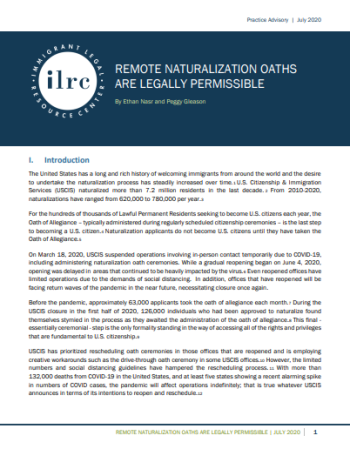
USCIS Naturalization processing was already delayed as long as 3-4 years in many jurisdictions before the pandemic and ensuing USCIS closures hit. Many thousands of applicants are waiting to complete the application process.
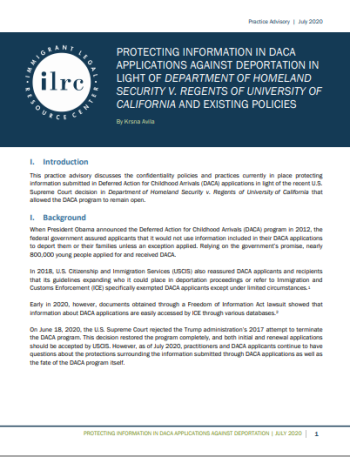
This practice advisory discusses the confidentiality policies and practices currently in place protecting information submitted in Deferred Action for Childhood Arrivals (DACA) applications in light of the recent U.S. Supreme Court decision in Department of Homeland Security v. Regents of University of California that allowed the DACA program to remain open.